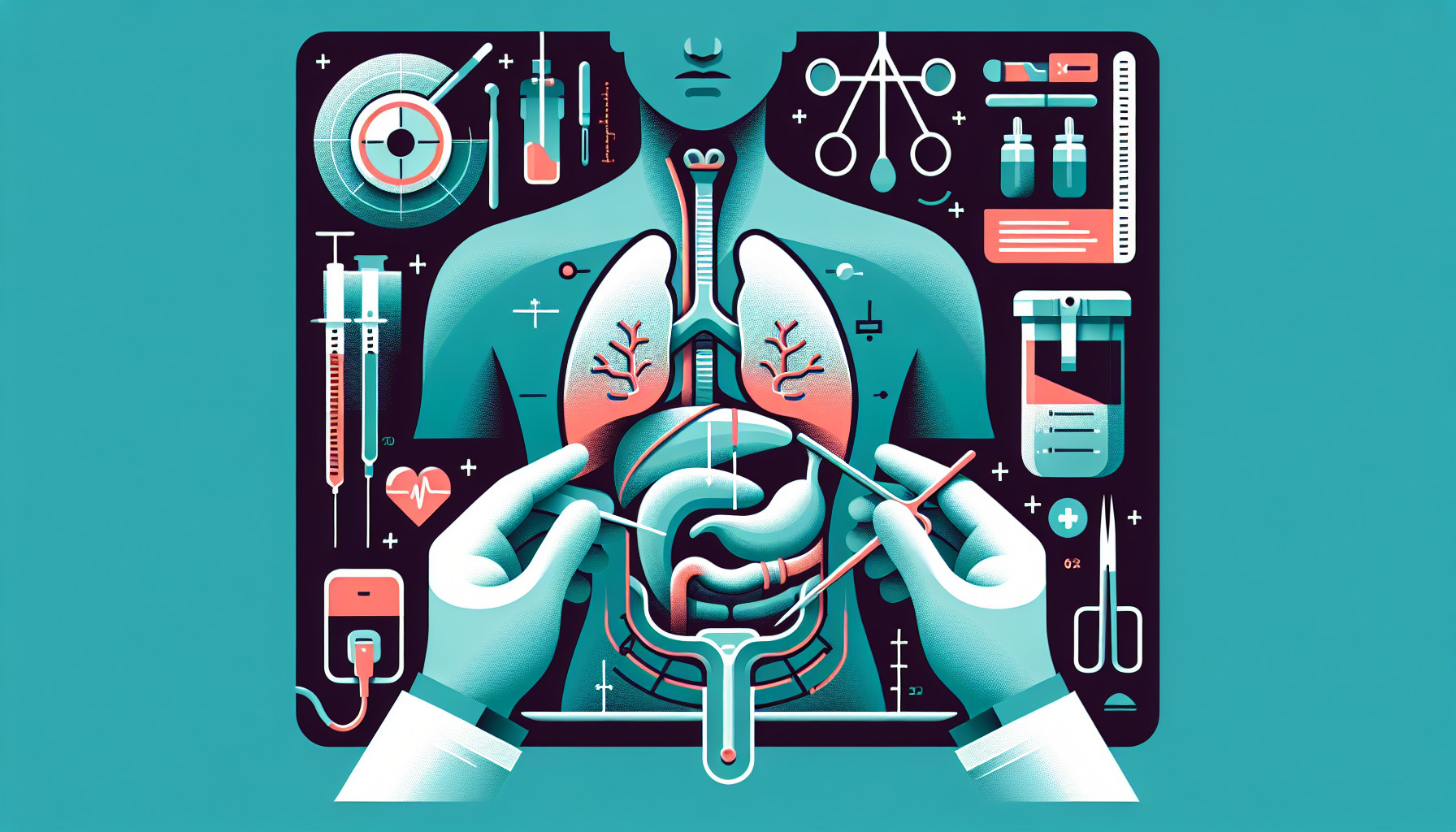Our Summary
This research paper discusses the benefits of simultaneous pancreas and kidney transplants (SPK) and pancreas after kidney transplants (PAK) for individuals with severe diabetes and kidney failure. These procedures can help patients live without the need for insulin injections and dialysis, and can even extend their lifespan compared to those who continue with dialysis and diabetes treatments.
The paper notes that while these types of transplants are beneficial, there’s been a decline in pancreas transplants in the United States, especially PAK. But, the study finds that pancreas transplants can still provide better blood sugar control than current medical treatments.
The research also shows that the success rates for both SPK and PAK transplants are improving and provide similar, excellent patient survival rates, which are better than other types of transplants or medical treatments. While SPK has better pancreas transplant survival rates, PAK is catching up. The best kidney transplant survival rates are seen when combined with a living donor renal transplant (LDRTx) and PAK.
So, the study concludes that PAK is still a successful treatment for severe diabetes and kidney failure. When combined with a LDRTx, it provides additional benefits. Therefore, for patients with these conditions who want to live without the need for insulin or dialysis, they should be offered either a LDRTx followed by PAK (if a living donor is available) or SPK.
FAQs
- What is the purpose of a pancreas transplant?
- How does a pancreas transplant compare to other medical therapies for glycemic control?
- What are the survival rates for simultaneous pancreas and kidney (SPK) and pancreas after kidney (PAK) transplants compared to other transplant or medical options?
Doctor’s Tip
A helpful tip a doctor might tell a patient about pancreas transplant is to consider both simultaneous pancreas and kidney (SPK) and pancreas after kidney (PAK) transplant options. Both procedures can provide the patient with insulin and dialysis independence, leading to improved glycemic control and overall survival. It is important to discuss with your healthcare provider which transplant option is best for your individual circumstances and to consider the benefits of living donor renal transplant (LDRTx) in conjunction with PAK.
Suitable For
Patients who are typically recommended for pancreas transplant are those with insulin dependent diabetes mellitus and renal failure. Specifically, those who would benefit from simultaneous pancreas and kidney transplant (SPK) or pancreas after kidney transplant (PAK) are candidates for this procedure. Pancreas transplant can provide better glycemic control than current medical therapies, and outcomes for both SPK and PAK continue to improve. Overall patient survival for both SPK and PAK is excellent and superior to other transplant or medical options. PAK remains a viable and successful treatment for uremia and insulin dependent diabetes, especially when following a living donor renal transplant (LDRTx). To achieve insulin and dialysis independence, candidates with appropriate indications should be considered for SPK or PAK.
Timeline
Before pancreas transplant:
- Patient undergoes extensive evaluation to determine candidacy for transplant
- Patient may be on dialysis for renal failure and insulin therapy for diabetes
- Patient is placed on the transplant waiting list
- Patient may wait months to years for a suitable donor organ to become available
After pancreas transplant:
- Patient undergoes surgery to receive the pancreas transplant
- Patient is closely monitored in the hospital for any complications
- Patient may experience initial side effects from immunosuppressive medications
- Patient begins to see improvement in blood sugar control and kidney function
- Patient is followed closely by transplant team for long-term care and monitoring
Overall, pancreas transplant can provide significant benefits for patients with both renal failure and diabetes, allowing them to achieve insulin and dialysis independence and improve their overall quality of life.
What to Ask Your Doctor
- What are the risks and benefits of a pancreas transplant for my specific medical condition?
- How long is the typical recovery time after a pancreas transplant?
- What is the success rate of pancreas transplants at your facility?
- Are there any alternative treatments or therapies that I should consider before opting for a pancreas transplant?
- How will a pancreas transplant affect my overall quality of life?
- What medications will I need to take after the transplant and are there any potential side effects?
- How often will I need to follow up with you after the transplant?
- Are there any lifestyle changes I will need to make after the transplant to ensure its success?
- What is the long-term outlook for someone who undergoes a pancreas transplant?
- Are there any specific criteria that I need to meet in order to be considered a candidate for a pancreas transplant?
Reference
Authors: Huber S, Fridell JA. Journal: Curr Opin Organ Transplant. 2025 Aug 1;30(4):273-278. doi: 10.1097/MOT.0000000000001229. Epub 2025 May 2. PMID: 40314358
